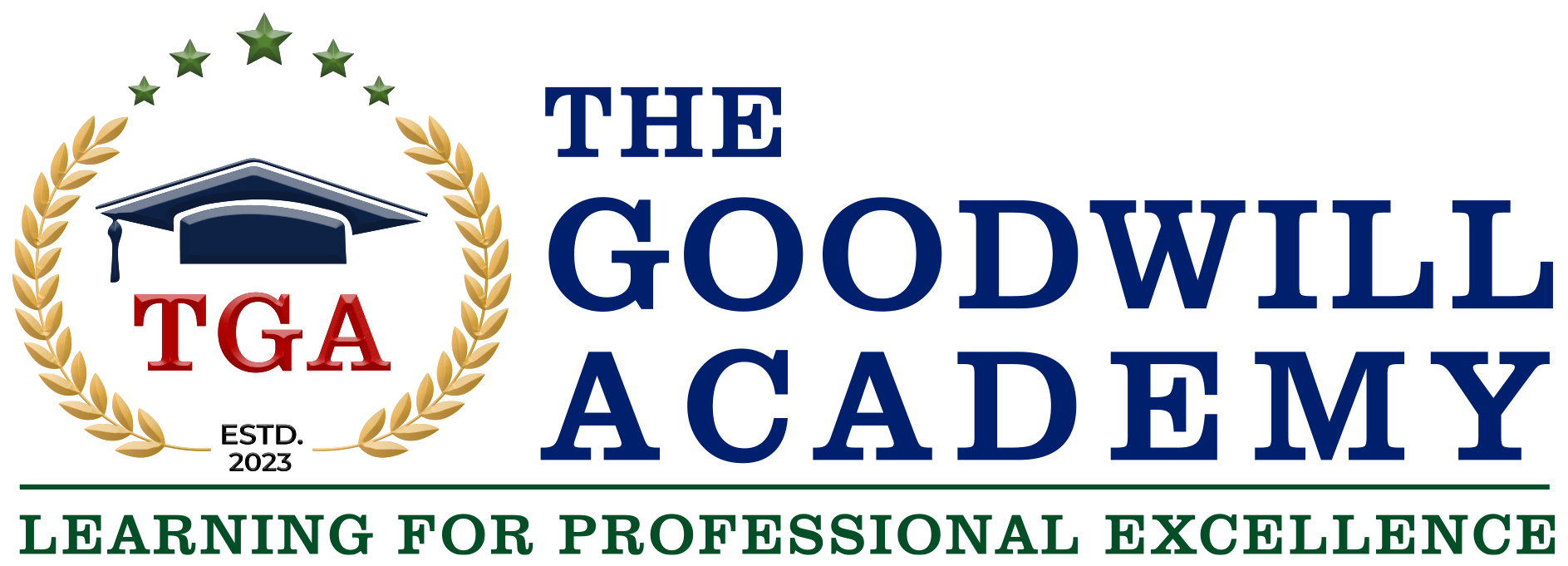About Us

The Goodwill Academy
At Goodwill Academy, we focused on delivering high-quality educational support through online platforms, catering to Professional students of various ages and backgrounds. By leveraging technology and innovative teaching methodologies, the institution aims to provide a global audience with systematic and rigorous professional learning opportunities.
The Goodwill Academy is committed to maintaining the highest standards of education, employing experienced professionals as instructors who bring real-world expertise and industry insights to the virtual classroom.
This approach not only ensures the relevance and practicality of the curriculum but also enables students to develop the skills and knowledge necessary to succeed in their professional endeavors. Overall, the Goodwill Academy strives to be a leading provider of online professional education, delivering high-quality content, fostering a global learning community, and empowering individuals to achieve their career aspirations.
Our Philosophy
The philosophy of The Goodwill Academy online educational institution represents its core beliefs, values, and guiding principles that shape its mission and vision. It is a statement of the institution's fundamental purpose and its approach to education. Here are a few common educational philosophies:
Holistic Education: This philosophy emphasizes the development of the whole person, including intellectual, emotional, social, and physical aspects.
Progressive Education: Progressive institutions believe in adapting teaching methods to the evolving needs and interests of students, focusing on active learning and critical thinking.
Inclusive Education: Inclusive institutions prioritize providing quality education to all students, regardless of their abilities, backgrounds, or disabilities.
Traditional Education: Traditional institutions often emphasize the transmission of knowledge through structured curriculum and teacher-centered instruction.
TGA's Principle
TGA The Goodwill Academy might have its unique principles that align with its philosophy. These principles could include:
Excellence: A commitment to providing high-quality education, hiring qualified staff, and maintaining rigorous academic standards.
Innovation: Embracing new teaching methods, technologies, and pedagogical approaches to enhance learning outcomes.
Diversity and Inclusion: Creating a welcoming and inclusive environment for students and staff from diverse backgrounds.
Student-Centered Learning: Focusing on the needs, interests, and goals of students to facilitate their personal and academic growth.
Key Of Success
Success for an educational institution can be measured in various ways, including student achievement, reputation, and impact on the community. Here are some key factors that contribute to the success of an educational institution:
Effective Leadership: Strong leadership, both at the administrative and academic levels, is crucial for setting a clear direction and fostering a positive institutional culture.
Quality Faculty: A dedicated and qualified teaching staff that is committed to student success and professional development.
Curriculum and Pedagogy: A relevant and engaging curriculum that aligns with the institution's philosophy and adapts to changing educational trends.
Resources: Sufficient funding, facilities, and technology to support teaching and learning activities.
Student Support Services: Providing academic advising, counseling, and other support services to help students succeed.
Community Engagement: Building positive relationships with the local community, industry partners, and alumni to enhance opportunities for students and the institution as a whole.
Assessment and Accountability: Regularly evaluating student outcomes and institutional effectiveness to identify areas for improvement.
Adaptability: Being open to change and responsive to the evolving needs of students and the broader educational landscape.
